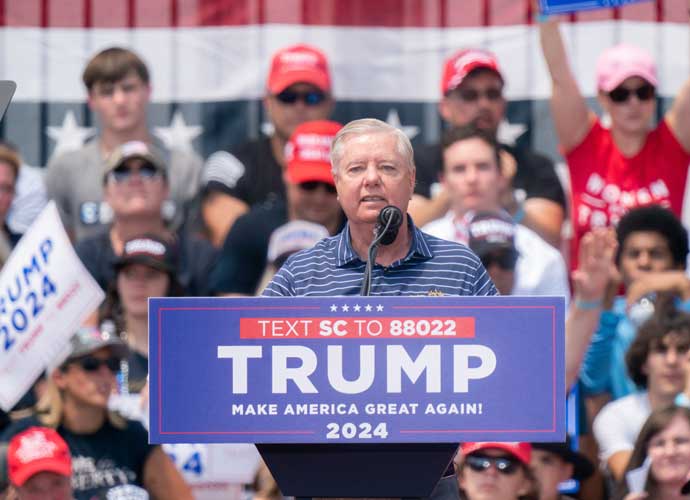Georgia Panel Recommended Criminal Charges Against Sen. Lindsey Graham & Other Trump Allies
A special grand jury that looked into the allegations of election interference in Georgia last year recommended indictments of Sen. Lindsey Graham (R-South Carolina), along with several other allies of former President Donald Trump, who were not charged by the Fulton Country District Attorney Fani Willis.
In the jury’s final report unsealed Friday, those recommended for indictment include Michael Flynn, a former national security adviser, and Boris Epshteyn, one of the main lawyers representing Trump.
Last month, a regular grand jury in Fulton County, Georgia, had charged Trump and his 18 allies in a racketing indictment. The special grand jury expanded the scope of action by recommending charges against more than twice as many allies of Trump as the prosecutor initially wanted to charge.
The grand jury’s report shows how the Fulton County District Attorney’s office exercised its discretion to conclude that some of those named in the report could not be proven criminal based on the acts they had committed.
Subscribe to our free weekly newsletter!
A week of political news in your in-box.
We find the news you need to know, so you don't have to.
The special grand jury was tasked to recommend whether the investigation, led by Willis, merited indictments. Willis sought to convene a special grand jury which has subpoena powers, because of her concern that some witnesses might not cooperate if they are not subpoenaed. Parts of the report were released in February but did not state who had been recommended for indictment. But the latest report has revealed the names of the several Trump allies recommended for indictment. Judge Robert McBurney of Fulton County Superior Court had ordered the release of this nine-page report last week.
The report also revealed that there was some disagreement among the 23 special grand jurors and three alternates designated to hear evidence about the election probe. The panel eventually categorized its investigation into seven parts, taking separate votes on which Trump-world figures should be charged within each part.
These categories include the phone call that Trump made on January 2, 2021, urging Georgia Secretary of State Brad Raffensperger to “find” enough votes to reverse Biden’s margin of victory in the state; separate attempts to pressure Georgia officials; false remarks about Georgia state legislative hearings; harassment of Georgia election workers; the gathering that featured a false slate of GOP electors; a breach of election equipment in Coffee County, Georgia; and the national attempt to reverse the 2020 election.
Get the most-revealing celebrity conversations with the uInterview podcast!








Leave a comment